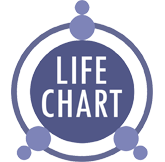The Ego center, or will center, plays a key role in shaping our identity and motivation. In this article, we will explore what the Ego center is, how it affects our lives, and the differences between defined, open, and completely open Ego centers.
What is the Ego Center?
The Ego center is responsible for willpower, self-esteem, and material values. It determines how we perceive ourselves, our goals, and achievements.
Quote: “The Ego center is an internal compass that guides us on our path to our goals.”
Defined Ego Center
Individuals with a defined Ego center possess stable and consistent inner energy. This means they are confident in their abilities and have a clear understanding of their values and goals.
Examples of a Defined Ego Center:
- Self-Confidence: A person with a defined Ego center can easily express their opinions and advocate for their interests. For example, they may confidently ask for a promotion at work because they know their worth.
- Stable Goals: They have a clear understanding of their life priorities and objectives. For example, they may plan for career advancement and successfully achieve their ambitions.
- Leadership Qualities: Such individuals can take on leadership roles and inspire others with their confidence. They are capable of taking responsibility and leading a team to success.
Open Ego Center
Individuals with an open Ego center may struggle with self-esteem and the perception of their values. They are influenced by those around them and can easily succumb to external factors.
Examples of an Open Ego Center:
- Self-Esteem Issues: A person with an open Ego center might feel less valuable compared to others. For example, they may avoid making decisions out of fear of making a mistake.
- Imitation: Such individuals often strive to copy the behavior of those they admire. This can manifest as an attempt to meet others’ expectations, losing their individuality in the process.
- Dependence on Others’ Opinions: They may rely too heavily on feedback from others, making it challenging to confidently make decisions. For example, this person may constantly seek advice from friends, doubting their own abilities.
Completely Open Ego Center
A completely open Ego center is a rare condition where a person has no activated gates in this center. This leads to maximum susceptibility to external influences and a lack of internal stability.
Examples of a Completely Open Ego Center:
- Excessive Dependence on Others: A person may lose their sense of identity and feel constant stress from needing to please others. For example, they might change their life goals based on the opinions of those around them.
- Difficulty Defining Personal Values: A completely open Ego center complicates the formation of stable values and priorities. The individual may feel uncertain about their desires and needs.
- Seeking External Validation: People with a completely open Ego center may continually seek approval and praise from others to confirm their worth. For example, they may feel compelled to engage in certain activities simply because others enjoy them.
How to Manage the Influence of the Ego Center
- Self-Awareness: Being aware of one’s susceptibility is the first step in managing the energies of open centers. Understanding that certain emotions or ideas may not be your own helps maintain calmness and avoid overstimulation.
- Building Confidence: Practicing decision-making based on personal desires and needs can strengthen internal confidence.
- Separating Self from Others’ Expectations: People with an open Ego center can learn not to identify with others’ emotions or thoughts, allowing them to establish their own values and goals.
Conclusion
The Ego center plays a vital role in shaping our identity and self-perception. Understanding the differences between defined, open, and completely open Ego centers helps us gain insight into ourselves and our motivations. Awareness of these aspects allows us to manage our lives more effectively and achieve our goals while staying true to ourselves.

